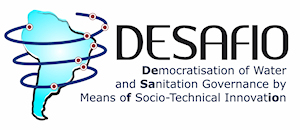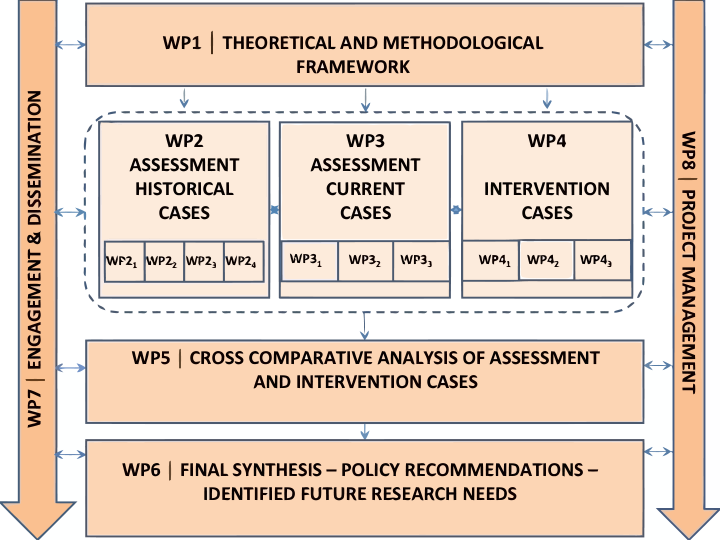Our work plan has been carefully designed to fulfil the objectives of the project. The different Work Packages (WP) form a coherent set of interconnected activities oriented towards the general objective of assessing existing experiences and developing new strategies that bring about sustainable, appropriate, and innovative socio-technical solutions to foster economic and social development through social transformation in vulnerable communities, particularly with reference to access to safe water and sanitation services (WSS). These activities will be developed by actively engaging beneficiary communities and other local stakeholders in their planning, design, assessment, implementation, monitoring, validation and diffusion.
The figure below shows the relationship between the different work packages. The order of the WPs has been envisaged in a logical rather than a temporal manner, so that several activities will take place simultaneously and will support each other. The work proposed in WP1 will ensure that all the case studies to be carried out in WP2-4 will share a common theoretical and methodological framework. This common framework will help us achieve the required level of comparability in the analyses of the cases to be conducted in WP5 as well as in the lessons to be drawn and the recommendations to be made in WP6.
WPs 2-4 will examine a range of case studies, which are highly relevant for comparative research, as they show both striking differences and similarities, in relation to the analytical dimensions of this study (see description of the individual case studies). These case studies have been carefully chosen in order to develop a holistic and comprehensive assessment and examine the complex and fluid nature of recent historical and current experiences as well as newly proposed interventions in the use of appropriate technologies for the provision of WSS in Brazil and other South American countries such as Argentina and Colombia.














